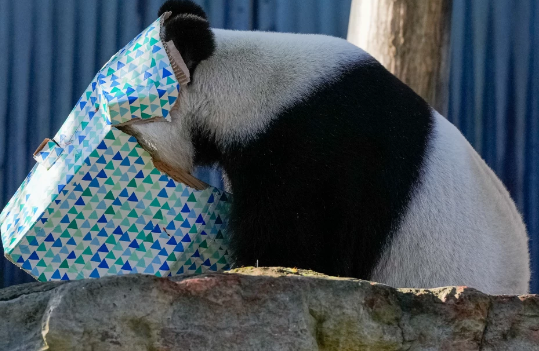China will loan Australia new “adorable” giant pandas to replace the popular pair, Wang Wang and Fu Ni, who have been at Adelaide Zoo since 2009. Despite various attempts, including artificial insemination, the pair failed to produce offspring over their more than a decade-long stay.
The announcement was made by visiting Premier Li Qiang on Sunday, highlighting China’s continued engagement in “panda diplomacy,” a global preservation scheme aimed at promoting conservation efforts and fostering international relations.
While one of the pandas playfully interacted with a strip of tree, Li informed the gathered audience that Wang Wang and Fu Ni would be returning to China. The new pandas are expected to bring fresh hope and excitement to the Adelaide Zoo’s conservation efforts.
“Wang Wang and Fu Ni have been away from home for 15 years — I guess they must have missed their home a lot — so they will return to China before the end of the year,” the premier said.
“But what I can tell you is that we will provide a new pair of equally beautiful, lovely and adorable pandas as soon as possible.”
China will provide Australia with a selection of new giant pandas to choose from, according to Premier Li Qiang. This announcement came during his four-day visit to Australia aimed at mending diplomatic relations and follows the lifting of several trade sanctions by Beijing on major Australian exports.
Li’s visit to Adelaide, the hometown of Australian Foreign Minister Penny Wong, underscores her efforts to stabilize and improve relations between the two countries. Li recalled that during his visit to Beijing last November, Wong had twice reminded him about the impending expiration of the panda loan agreement.
Wong expressed her gratitude for the new panda loan, emphasizing its positive impact on the economy, job creation, tourism, and symbolizing goodwill. She mentioned that her own children would be delighted by the news.
Giant pandas, although removed from the International Union for Conservation of Nature’s endangered species list in 2016, still face significant threats due to habitat loss and fragmentation. According to WWF, there are approximately 1,860 giant pandas remaining in the wild, highlighting the continued importance of conservation efforts.



